In today’s competitive music scene, achieving maximum exposure and building a strong brand identity is crucial for bands aiming to thrive in the entertainment industry. Public relations (PR) plays a pivotal role in shaping a band’s reputation, fostering connections with media outlets, and connecting with audiences worldwide. Effective band PR strategies can elevate a group from obscurity to prominence, ensuring their message reaches the right ears and resonates deeply. Whether it’s crafting compelling press releases, managing relationships with journalists, or aligning branding efforts with core values, a well-executed PR campaign is indispensable for musicians seeking lasting success. This guide delves into proven strategies that can help bands unlock their full potential and leave a lasting impact on the music world.
Key Takeaways
- Build a Strong Online Presence: Develop a professional website, utilize social media platforms like Instagram and TikTok, and implement email marketing to connect with fans.
- Engage with Your Audience: Foster community building through Q&A sessions and collaborations, leveraging partnerships for expanded reach.
- Leverage Live Performances: Secure performance slots, network at events, and consider opening for established bands to expose your music to new audiences.
- Optimize Streaming Platforms: Ensure high-quality audio and metadata, and offer exclusive content to incentivize shares and reviews.
- Utilize Word-of-Mouth Marketing: Encourage fan recommendations and pitch music to bloggers for reviews to enhance credibility.
- Stay Persistent and Adapt: Grow steadily with consistent content releases and adjust strategies based on analytics.
- Explore Additional Promotion Tactics: Use crowdfunding, participate in competitions, and explore emerging platforms like Bandcamp for direct engagement.
- Understand Listener Preferences: Tailor content to casual listeners, die-hard fans, emotional seekers, niche enthusiasts, curious explorers, and social followers to meet diverse needs.
- Cater to Social Following: Collaborate with influencers and use viral challenges to boost popularity among trend-conscious listeners.
- Create Compelling Content: Regularly publish blogs and vlogs, discuss creative processes, and link to music releases to attract and retain fans.
- Merchandising: Sell official merchandise to create lasting connections and drive revenue.
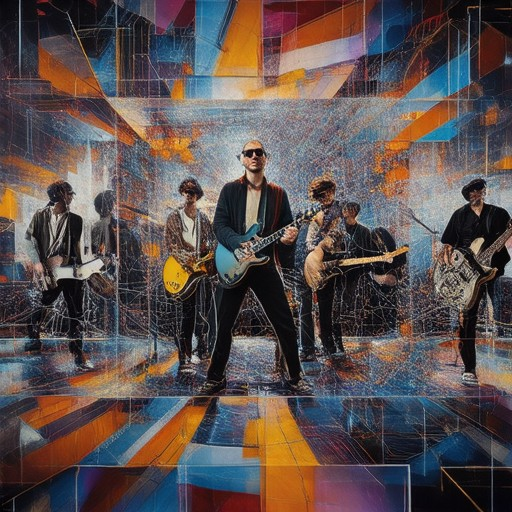
What Does a PR Do for a Band?
A Public Relations (PR) representative plays a pivotal role in elevating a band’s visibility and building its reputation within the music industry. Here’s a breakdown of the key responsibilities and functions:
- Media Relations:** A PR works to secure media coverage for the band through newspapers, magazines, radio, and online platforms. This includes scheduling interviews, arranging press conferences, and issuing press releases.
- Press Releases:** Crafting and distributing press releases to announce new albums, tours, or significant band news. These releases are designed to capture the media’s attention and interest.
- Building Relationships:** Establishing strong connections with journalists, editors, and influencers to facilitate positive coverage and foster trust.
- Promotion of Events:** Promoting concerts, tours, and special events through targeted marketing efforts, press passes, and media invites to maximize attendance and coverage.
- Fan Engagement:** Helping the band connect with fans through social media campaigns, contests, and exclusive content drops to build a loyal fanbase and buzz around new projects.
- Brand Partnerships:** Collaborating with brands that align with the band’s image to secure sponsorships, product endorsements, or promotional deals, expanding the band’s reach and influence.
- Strategic Planning:** Developing and executing PR strategies tailored to the band’s goals, whether it’s increasing record sales, boosting concert attendance, or establishing the band as a thought leader in the music scene.
- Monitoring and Adjustment:** Continuously tracking the effectiveness of PR campaigns through metrics like media mentions, social media engagement, and sales data, allowing for adjustments to optimize outcomes.
By leveraging these strategies, a PR effectively amplifies the band’s voice, fosters meaningful connections with stakeholders, and contributes to the band’s long-term success in the music industry.
How Do Bands Get Noticed?
Bands can gain recognition through a combination of strategic efforts, creativity, and persistence. Here are some effective ways bands can stand out:
- Touring Extensively
Consistent live performances help bands reach new audiences. Touring allows bands to build a loyal fanbase, create buzz, and establish themselves in different regions. Engaging with local crowds can lead to word-of-mouth marketing, which is invaluable for gaining attention. - Leverage Social Media and Online Presence
Platforms like Instagram, TikTok, and YouTube provide opportunities to share music, connect with fans, and grow a following. Viral content, such as unique videos or cover songs, can significantly boost visibility. Utilize these platforms to showcase personality, behind-the-scenes moments, and sneak peeks of new music. - Collaborate and Network
Partnering with other artists, producers, or influencers can open doors to new opportunities. Attend industry events, join online communities, and engage with professionals who can offer guidance or collaboration opportunities. - Build a Strong Online Presence
Create professional visuals, such as photos and videos, and design a cohesive website. A well-branded presence helps establish credibility and makes it easier for fans and industry professionals to find and connect with the band. - Utilize Streaming Platforms
Platforms like Spotify, Apple Music, and YouTube Music allow bands to reach global audiences. By understanding algorithms and leveraging features like curated playlists, bands can increase their visibility and attract new listeners. - Deliver Memorable Live Performances
Live shows are often the first impression for many fans. Bands that create energetic, impactful performances can turn casual attendees into loyal followers. Focus on creating a unique experience that leaves a lasting impression. - Engage with Fans
Interact with your audience through social media, email newsletters, and fan clubs. Responding to feedback, hosting Q&A sessions, and involving fans in decision-making processes can foster a dedicated supporter base. - Seek Press and Media Coverage
Pitch stories to music bloggers, journalists, and radio stations. Positive coverage can significantly boost visibility and credibility. Build relationships with media outlets to increase chances of being featured.
By combining these strategies, bands can steadily build their reputation, attract dedicated fans, and eventually achieve widespread recognition in the music industry.
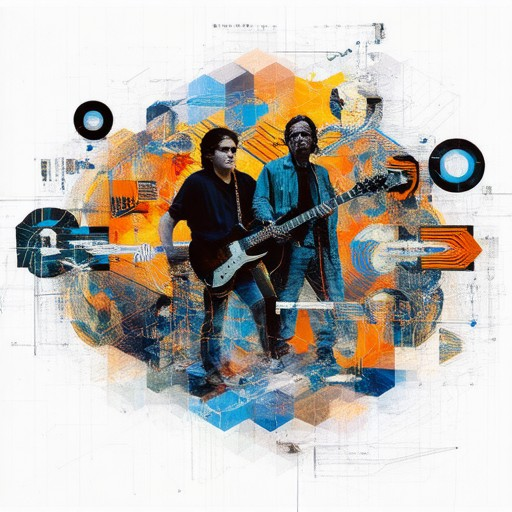
Strategies in a PR Plan
- Research and Identify Key Messages: Begin by understanding your brand’s unique value proposition and the market landscape. Craft clear, consistent messaging that aligns with your goals and resonates with your audience.
- Build Relationships with Media Outlets: Establish connections with journalists, bloggers, and influencers who cover topics related to your industry. This helps in securing coverage and building credibility.
- Develop a Content Strategy: Create high-quality content such as press releases, blog posts, and social media updates. Ensure this content is optimized for search engines and provides value to readers.
- Monitor and Analyze Feedback: Actively track mentions of your brand online. Engage with discussions positively and address any concerns or criticisms promptly to mitigate potential damage.
- Collaborate with Influencers: Partner with individuals who have a strong following in your niche. Their endorsement can significantly boost your brand’s visibility and trustworthiness.
- Host Events or Webinars: Organize events or webinars that showcase your expertise and attract media attention. Share the event details widely to maximize reach.
- Measure and Adjust Tactics: Continuously monitor the effectiveness of your PR efforts through metrics like website traffic, social media engagement, and media coverage. Adjust strategies based on what works best.
- Stay Updated on Trends: Keep an eye on industry trends and adapt your PR approach accordingly. Understanding what’s current can help you stay relevant and effective in your communication.
For more insights, visit our main website or explore our latest blog posts for additional tips and strategies.
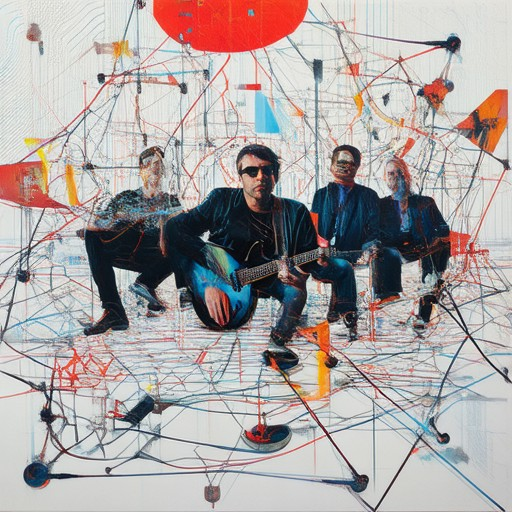
How to Get People to Listen to Your Band
To effectively promote your band and attract listeners, consider implementing the following organized approach:
1. Build a Strong Online Presence
- Website Development:** Create a professional website featuring your band’s bio, photos, videos, and a music portfolio. Include a press kit for media inquiries.
- Social Media Engagement:** Utilize platforms like Instagram and TikTok to share short music clips, behind-the-scenes content, and interactive polls to connect with fans.
- Email Marketing:** Implement a newsletter signup on your website to stay connected with fans and share updates on new music and events.
2. Engage with Your Audience
- Community Building:** Actively respond to fan comments and messages to foster a sense of belonging. Host Q&A sessions or fan meetups to deepen connections.
- Collaborations:** Partner with other bands or influencers for joint projects or guest appearances, leveraging their fan base to expand yours.
3. Leverage Live Performances
- Live Shows:** Secure performance slots at local venues and festivals. Network at these events to distribute promotional materials and CDs.
- Openers for Established Bands:** Contact popular bands to see if you can open for them, exposing your music to their existing fanbase.
4. Optimize Streaming Platforms
- High-Quality Audio:** Ensure your tracks are available in high quality on platforms like Spotify, Apple Music, and YouTube. Use professional album art and metadata.
- Exclusive Content:** Offer incentives like free downloads or exclusive tracks to followers who share your content or leave reviews.
5. Utilize Word-of-Mouth Marketing
- Fan Recommendations:** Encourage satisfied listeners to recommend your music to friends and family. Consider offering rewards for referrals.
- Music Reviews:** Pitch your music to music bloggers and journalists for features and reviews, enhancing your band’s credibility.
6. Stay Persistent and Adapt
- Patient Growth:** Understand that building a fanbase takes time. Consistently release quality content and engage with your audience to grow steadily.
- Track Analytics:** Monitor performance metrics to identify successful strategies and adjust your approach accordingly.
7. Explore Additional Promotion Tactics
- Crowdfunding:** Consider crowdfunding campaigns to fund promotions and gain early supporters.
- Participate in Competitions:** Enter music contests or competitions for exposure and potential placement opportunities.
- Emerging Platforms:** Explore newer platforms like Bandcamp or SoundCloud for direct fan engagement and sales opportunities.
By systematically applying these strategies, you can effectively increase your band’s visibility and attract a loyal listener base.
How to Hype Your Band
To effectively hype your band, Oedipus Band, we’ve compiled a comprehensive guide packed with actionable strategies to boost your visibility and engage your audience.
- Build a Strong Online Presence: Create professional profiles on platforms like Facebook , Twitter , and Instagram . Share updates, tour dates, and behind-the-scenes content consistently to keep your fans connected.
- Leverage Social Media Platforms: Utilize visual platforms like Instagram and TikTok to showcase your music videos and live performances. Post short clips, behind-the-scenes reels, and engage with your followers by responding to comments and messages.
- Collaborate with Other Bands: Partnering with similar bands can help you reach new audiences. Mention each other in posts or host joint events. Always maintain professionalism and avoid placing competitors above your own brand.
- Host Live Performances: Organize gigs, festivals, or intimate acoustic sessions to connect with fans in person. Promote these events heavily on social media and your website to drive attendance.
- Create Compelling Content: Regularly publish blogs, vlogs, and articles on your website or blog platform. Discuss your creative process, share lyrics, and offer advice for aspiring musicians. Include links to your music and recent releases within your content.
- Engage with Fans Through Q&A Sessions: Host live Q&A sessions on platforms like Instagram or Facebook. Answer questions about your music, inspirations, and future plans to build trust and loyalty among your supporters.
- Use Video Marketing: Create engaging video content such as lyric videos, live performances, or storytelling clips. Platforms like YouTube and TikTok are great for sharing these pieces and reaching wider audiences.
- Participate in Music Contests and Competitions: Enter local or online music competitions to gain exposure. Winning or placing highly can significantly boost your band’s reputation and fan base.
- Distribute Your Music Widely: Upload your songs to streaming platforms like Spotify, Apple Music, and YouTube Music. Ensure your tracks are tagged correctly with relevant keywords to improve discoverability.
- Network at Local Events: Attend or perform at local music festivals, fairs, and community events. Hand out flyers, stickers, and business cards to promote your band and gather potential fans.
- Offer Free Downloads or Singles: Release free singles or EPs to attract new listeners. Promote these downloads on your social media channels and forums to encourage sharing among fans.
- Run a Fan Club or Community: Create a dedicated group for your fans on platforms like Discord or Facebook Groups. Offer exclusive content, early access to tickets, and behind-the-scenes insights to foster a loyal community.
- Use Influencers and Ambassadors: Partner with influencers in your genre to promote your music. Their endorsement can significantly increase your credibility and reach among their followers.
- Optimize for SEO: Use relevant keywords and phrases when creating content for your website and blog. Include links to your music, tours, and merchandise to improve your search engine rankings.
- Merchandising: Sell official merchandise like T-shirts, hoodies, and posters. Offer these products exclusively online or during live performances to create a lasting connection with your fans.
- Stay Consistent and Patient: Building a fan base takes time. Stay consistent with your efforts, monitor your progress, and adjust your strategies based on what works best for your unique sound and audience.
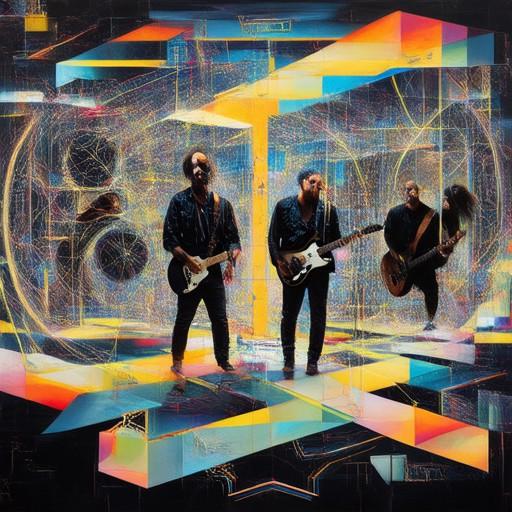
What Music Listeners Want
Music listeners have diverse preferences, and understanding what they want can help creators and promoters better connect with their audience. Here’s a breakdown of what different music listeners seek:
- Casual Listeners : These individuals often enjoy music as background noise or for mood enhancement. They may not actively seek out specific genres but appreciate variety and accessibility. Platforms like Spotify’s “Discover” section cater to this group by offering personalized, algorithm-driven playlists.
- Die-Hard Fans : Dedicated followers of specific artists or genres often crave exclusive content, behind-the-scenes access, and early releases. Fan clubs, newsletters, and social media platforms are key channels for satisfying this demand.
- Emotional Seekers : Many listeners are drawn to music that evokes strong emotions. Whether it’s nostalgia, inspiration, or comfort, emotionally resonant tracks are highly valued. Artists like Taylor Swift and Ed Sheeran excel at crafting songs that connect deeply with their audience.
- Niche Enthusiasts : Individuals with specific tastes, such as classical music or independent bands, often seek out lesser-known artists or rare tracks. Platforms like Bandcamp and SoundCloud cater to this market by hosting niche genres and unsigned talent.
- Curious Explorers : Listeners who enjoy discovering new sounds often look for recommendations based on their current favorites. Algorithms and tastemaker-curated playlists like Apple Music’s “New Music Daily” play a crucial role in satisfying this curiosity.
- Social Followers : In today’s digital age, many listeners consume music to stay trendy or align with their social identity. Collaborations with influencers and viral challenges can significantly boost a track’s popularity among this group.
Understanding these preferences requires creators to balance accessibility with authenticity, leveraging platforms and strategies that cater to different segments of the music-consuming population. By doing so, artists and promoters can better engage their audience and meet their evolving needs.

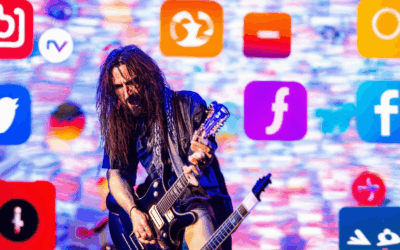
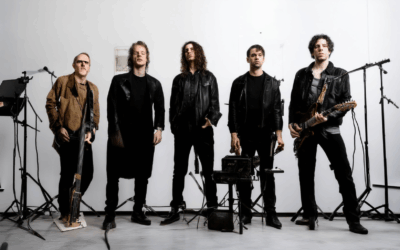
0 Comments